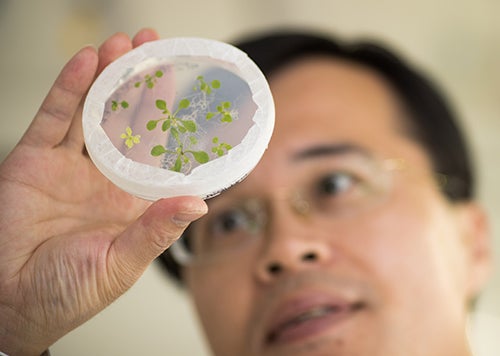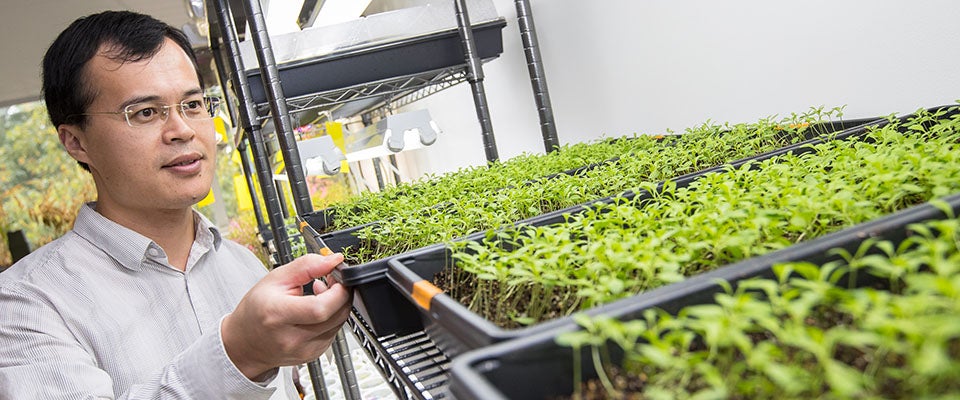DISCOVERING BREAKTHROUGHS
ECU research will improve agriculture, nutrition
Research by an East Carolina University faculty member may help combat world hunger through the development of high-yield and healthier crops.
Dr. Yiping Qi, ECU assistant professor of biology, is conducting plant translational research in order to improve yield, nutrition and disease resistance in crops.
His work includes creating technology to edit plant genomes. This process breaks down plant DNA into specific sequences in order to achieve precise goals, such as removing or introducing new genetic material.
The editing technology can be applied to a wide range of crops, meaning that it could impact agriculture on a global scale.
“Specifically, I am interested in developing and applying new breeding tools to transfer the knowledge that scientists have learned from many years’ basic plant science research into real products, which are improved crops that are disease-resistant, high yield and containing better nutrition and fewer allergens,” Qi said.

The editing technology can be applied to a wide range of crops.
The Kenan Institute at North Carolina State University as well as Syngenta, a global agro biotechnology company, are currently supporting Qi’s project, granting $140,000 for two years.
Recently, Qi has developed a toolbox to facilitate genome editing and transcriptional reprogramming. In less than a year, the toolbox has been distributed to other laboratories around the world.
Levi Lowder of Durango, Colorado is a biology postdoctoral scholar aiding Qi’s research. His role in the project has been to manage, execute and analyze experiments that result in the production of genetically engineered plants.
“The biotechnologies we work with have already proven extremely powerful. These engineered plants will serve as research tools to help carry out advanced experiments and discover breakthrough methodologies,” said Lowder.
The ultimate goal of the project is to create technologies that will be able to meet global food demands to combat hunger and nutrition deficiencies as the world’s population continues to grow.
While the research has yet to produce cultivars or elite crop lines, the initial results are positive. Qi has been invited to speak around the world on his research, including conferences in France, Washington D.C. and New York.

While the research has yet to produce cultivars or elite crop lines yet, the initial results are positive.
